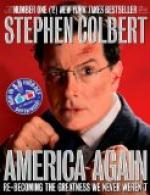He was now about to go to “see to things,” taking Bertie, his right-hand boy, with him, but leaving Nellie with me. Bertie had expressed himself quite agreeable to the arrangement, but at the eleventh hour refused to go without Nellie; and Nellie, preferring the now fascinating homestead to the company of her lord and master, refused to go with him, and Mac was at his wits’ end.
It was impossible to carry her off by force, so two days were spent in shrill ear-splitting arguments the threads of Nellie’s argument being that Bertie could easily “catch nuzzer lubra,” and that the missus “must have one good fellow lubra on the staff.”
Mac, always chivalrous, said he would manage somehow without Bertie, rather than “upset things”; but the Maluka would not agree, and finally Nellie consented to go, on condition that she would be left at the homestead when the waggons went through.
Then Mac came and confessed a long-kept secret. Roper belonged to the station, and he had no claim on him beyond fellowship. “I’ve ridden him ever since I came here, that’s all,” he said, his arm thrown across the old horse. “I’d have stuck to him somehow, fair means or foul, if I hadn’t seen you know how to treat a good horse.”
The Maluka instantly offered fair means, but Mac shook his head. “Let the missus have him,” he said, “and they’ll both have a good time. But I’m first offer when it comes to selling.” So the grand old horse was passed over to me to be numbered among the staunchest and truest of friends.
“Oh, well,” Mac said in good-bye. “All’s well that end’s well,” and he pointed to Nellie, safely stowed away in a grove of dogs that half filled the back of the buck-board.
But all had not ended for us. So many lubras put themselves on the homestead staff to fill the place left vacant by Nellie, that the one room was filled to overflowing while the work was being done, and the Maluka was obliged to come to the rescue once more. He reduced the house staff to two, allowing a shadow or two extra in the persons of a few old black fellows and a piccaninny or two, sending the rejected to camp.
In the morning there was a free fight in camp between the staff and some of the camp lubras, the rejected, led by Jimmy’s lubra—another Nellie—declaring the Maluka had meant two different lubras each day.
Again there was much ear-splitting argument, but finally a compromise was agreed on. Two lubras were to sit down permanently, while as many as wished might help with the washing and watering. Then the staff and the shadows settled down on the verandah beside me to watch while I evolved dresses for two lubras out of next to nothing in the way of material, and as I sewed, the Maluka, with some travellers who were “in” to help him, set to work to evolve a garden also out of next to nothing in the way of material.
Hopeless as it looked, oblong beds were soon marked out at each of the four corners of the verandah, and beyond the beds a broad path was made to run right round the House. “The wilderness shall blossom like the rose,” the Maluka said, planting seeds of a vigorous-growing flowering bean at one of the corner posts.




